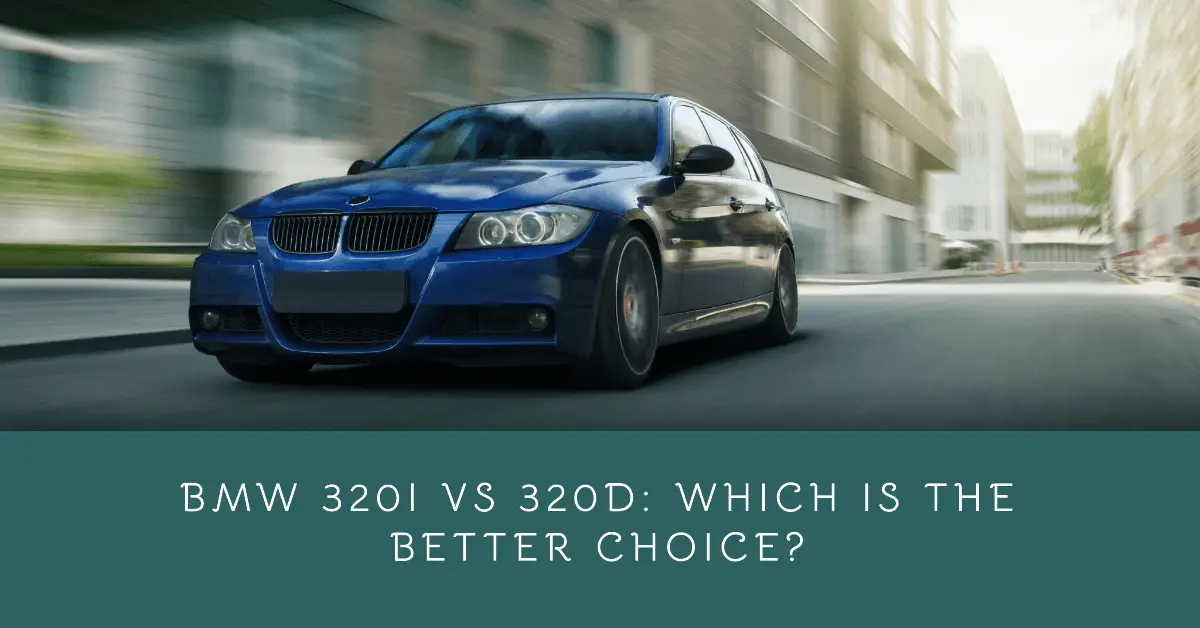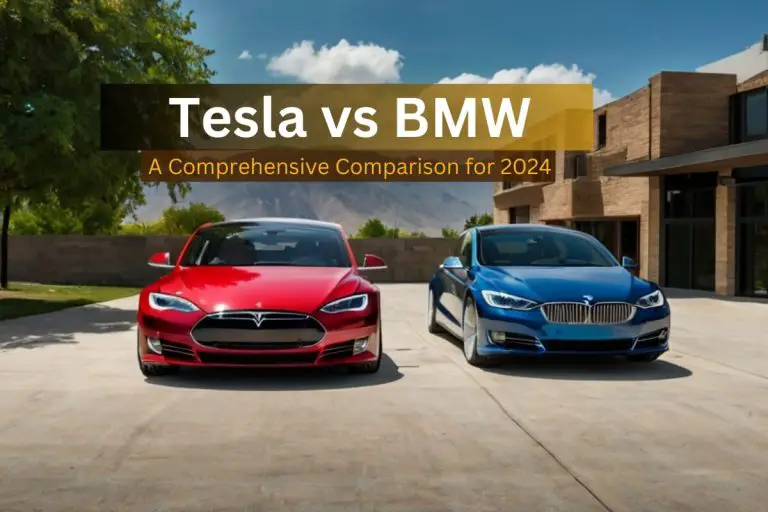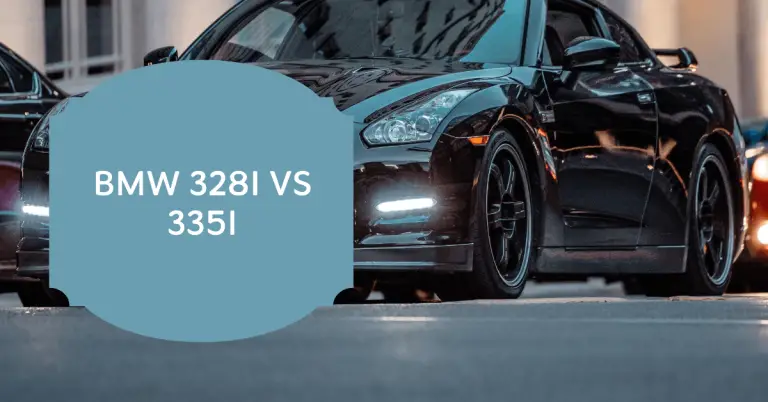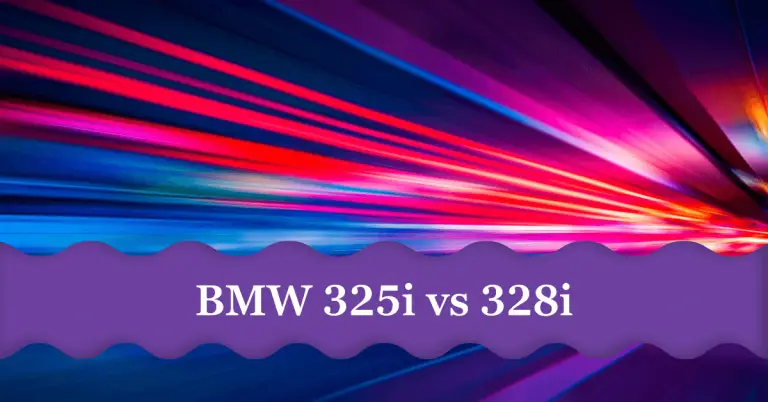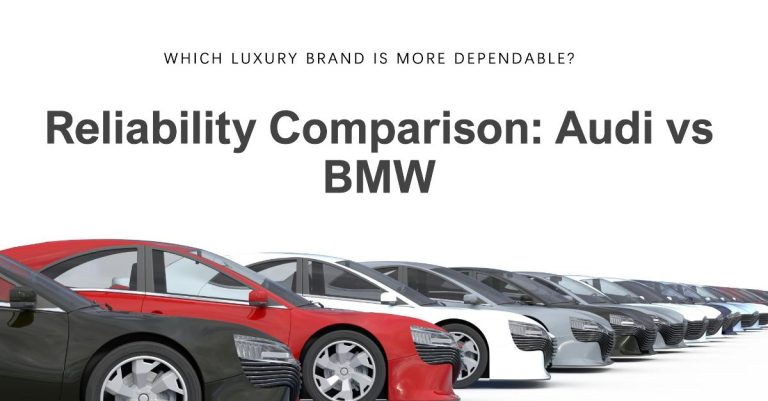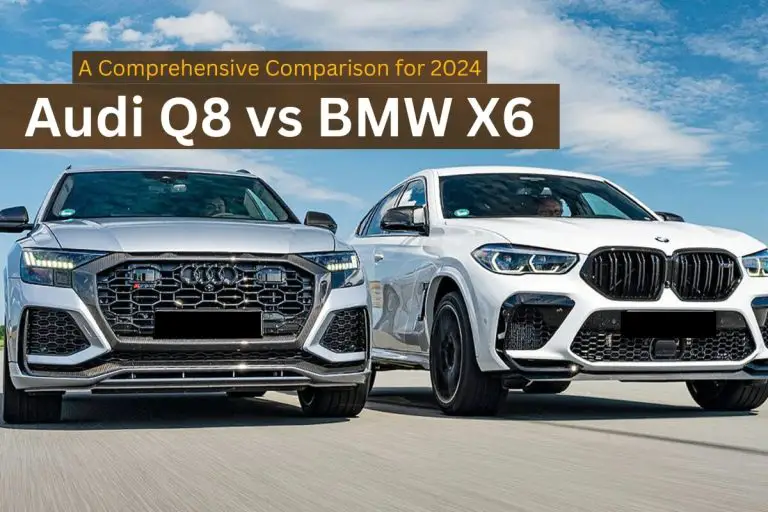BMW 320i vs 320d: A Detailed Comparison of Performance and Fuel Efficiency
If you’re looking at the BMW 3 Series 320 models, you likely have your eye on the 320i or 320d. But which one is right for you? The 320i features a turbocharged gas engine that revs high and delivers exhilarating performance. Meanwhile, the 320d sports a turbo diesel that offers bountiful low-end torque and superior fuel efficiency.
This in-depth comparison of the BMW 320i versus 320d analyzes all the key factors to help you decide which engine suits your needs. We’ll look at horsepower and torque specs, acceleration, transmission options, MPG fuel economy ratings, maintenance costs, and overall driving dynamics. You’ll get the full scoop on how these two versions of the classic 3 Series compare from every angle.
Engine Specs – Horsepower, Torque and RPM
Under the hood, the BMW 320i and 320d share a 2.0L TwinPower Turbo 4-cylinder engine but utilize different fuel sources and tuning to produce different power and torque curves.
The 320i utilizes a gasoline engine that generates 180 horsepower at 5000-6500 RPM and 200 lb-ft of torque from 1350-4250 RPM. This allows the 320i to reach its peak horsepower at higher revolutions in the RPM band.
Alternatively, the 320d employs a high-tech diesel engine tuned to produce 190 horsepower at 4000 RPM and a mighty 295 lb-ft of torque from just 1750-2250 RPM. The diesel’s massive torque output comes on quickly at low RPMs for excellent acceleration from a standstill. However, horsepower tops out lower in the rev range compared to the gas-powered 320i.
In summary, the 320d offers superior low-end torque for strong launches and effortless cruising power. The 320i shines when the RPMs climb, delivering more free-revving horsepower at the top end.
Acceleration and Driving Dynamics
The differences in torque and horsepower between the 320i and 320d directly impact acceleration and general driving dynamics.
Off the line and through the mid-range, the 320d’s profuse low-end torque gives it an advantage during acceleration runs. The 320d can spring from 0-60 MPH in just 6.3 seconds with the 8-speed automatic. The burst of low RPM torque reduces the need for downshifting to find the engine’s sweet spot.
Conversely, the 320i hits 60 MPH in a slightly slower 6.6 seconds. To access peak power, more downshifting is required to bring the engine into its higher horsepower range. Once past 3000 RPM, the 320i starts to pull stronger and remains responsive to redline.
The 320d exhibits superior initial jump off the line but the 320i ultimately catches up at higher speeds once the engine gets into its peak torque band. In general, the 320d provides effortless thrust while the 320i encourages running through the gears and wringing out every last RPM.
Transmission Options: 8-Speed Automatic vs Manual
Both the 320i and 320d come standard with a responsive 8-speed automatic transmission that maximizes fuel efficiency and acceleration. The seamless gear changes and optimized gear ratios keep the engines operating smoothly in their ideal RPM ranges.
However, the 320i offers an intriguing manual transmission option for those who love to row their own gears. The 6-speed manual supplies crisp, precise shifts combined with a viscerally engaging clutch pedal. This gives the 320i an added dimension of driver involvement and control.
In summary, the 8-speed auto provides the best performance universally across both models. But the manual gearbox brings a uniquely interactive experience to the 320i for driving enthusiasts seeking maximum engagement.
Fuel Economy – MPG Ratings
One area where the differences between gasoline and diesel really shine through is fuel efficiency. This holds major implications for ownership costs and driving range.
The 320d diesel dominates here with an EPA rating of 36 mpg combined, which breaks down to 32 mpg city and 45 mpg highway. By contrast, the 320i gasoline motor gets lower mileage of 28 mpg combined (24 city/35 highway).
Based on a 14-gallon fuel tank, the 320d can travel over 600 miles between fill ups versus about 450 miles for the 320i. For high mileage drivers, the 320d’s reduced fuel consumption can add up to significant cost savings over months and years of ownership.
If maximum fuel economy is your goal, the 320d diesel is the clear victor. However, the 320i’s efficiency is still respectable for the class.
Driving Experience
Beyond the numbers, these two 320 models simply feel different from behind the wheel. Here’s a look at how the 320i and 320d compare in terms of general driving enjoyment and personality on the road.
The 320d exhibits copious low-end grunt right from idle, accelerating with authority even from very low RPMs. This gives a sense of seemingly endless power on tap. The engine feels relaxed and unstressed even under heavy throttle. The overall vibe skews towards comfort and cruising.
Alternatively, the 320i encourages running the engine through the rev range to access peak output. Power builds in a more progressive, linear way as momentum increases. This creates a rewarding sense of the engine coming alive at higher RPMs. The nature errs more towards sporty engagement versus laid back cruising.
Both versions utilize BMW’s famed handling prowess, delivering crisp turn-in, responsive reflexes, and excellent grip through corners. The rear-wheel-drive configuration supplies balanced dynamics along with the promise of tail-out oversteer when desired.
No matter which 320 you choose, the precise steering and athletic chassis provide driving joy. Yet the engine character ultimately sets the tone.
In summary, the 320d emphasizes effortless real-world usability while the 320i focuses squarely on rev-happy driving excitement.
Maintenance and Ownership Costs
Purchase price, fuel costs, insurance rates, and maintenance requirements also factor into overall ownership costs. Here’s how the 320i and 320d compare:
- Purchase Price – The 320d costs around $1,500 more upfront due to the additional hardware needed for the diesel engine.
- Fuel Costs – The 320d saves significantly at the pump over months and years, offsetting the higher initial investment.
- Insurance – Premiums are very close for both models. The 320d may cost slightly more to insure.
- Maintenance – Oil change intervals are longer on the gasoline 320i at 10,000 miles versus 5000 miles for the 320d. Diesel fuel filter and DEF fluid also require periodic service.
Overall, while the 320d’s diesel engine adds cost at purchase, it pays dividends down the road through reduced lifetime fuel expenditures while retaining comparable maintenance needs. The 320i offers a lower initial outlay at a cost of higher ongoing fuel consumption.
If keeping purchase price and maintenance cost down is a priority, the 320i makes sense. But the 320d offers better potential for long-term savings.
Which Is the Right Choice – 320i or 320d?
So if you’re debating between the BMW 320i vs 320d, which is the best pick? Here are some final recommendations:
- The 320d is ideal for drivers who log higher annual miles and value superb fuel efficiency with abundant low-end torque. Relaxed cruising abilities make it a fine choice for daily commuting duties.
- The 320i best suits those seeking free-revving power and a sporty driving experience. It’s geared more towards performance, especially when equipped with the manual transmission.
- You can’t go wrong either way. Both the 320i and 320d deliver the famed driving dynamics BMW is renowned for in a compact, agile package. Each engine variant simply shifts the focus in a slightly different direction.
The BMW 3 Series 320 models remain perennial favorites among compact luxury sedans by blending superb handling and refinement with everyday livability. Choosing between the 320i and 320d comes down to aligning the engine character with your priorities and needs. With brisk acceleration, high-quality interiors, and excellent MPG either engine will satisfy!

